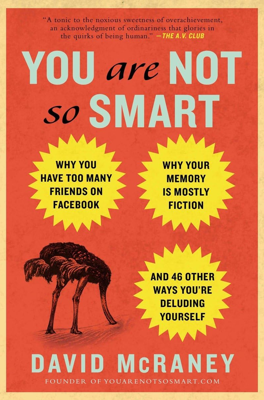The Fundamental Attribution Error
Misconception vs. Truth
Misconception:
Other people’s behavior is a reflection of their personality.
Truth:
Other people’s behavior is more the result of the situation than their disposition.
The Fundamental Attribution Error
- Restaurant Example: When experiencing poor service, such as receiving the wrong food or slow service, customers often blame the server's supposed incompetence rather than considering external factors like kitchen errors.
- Importance of Situations: Individuals tend to attribute behavior to personality traits and overlook the situational influences that may be affecting the person.
Cognitive Bias in Judgments
- Quiz Show Hosts: Viewers mistakenly attribute intelligence to hosts like those on Jeopardy without considering that their perceived intellect is bolstered by the show's format.
- Archetypes and Stereotypes: People often rely on these mental shortcuts to form judgments about others.
Social Masks
- Role-Playing: Everyone acts differently in varying social contexts, such as with friends, family, or at work. Despite knowing this about oneself, people often forget it applies to others as well.
Examples from News and Society
- Going Postal Phenomenon: Despite the lower homicide rates at post offices compared to retail, media coverage has ingrained the stereotype of postal workers going on violent rampages.
- Misjudging Killers: Society often attributes mass shootings to mental instability rather than examining the situational drivers like prolonged work grievances or isolation.
Psychological Theories
- Attribution Theory: This concept, a foundation of social psychology, highlights the tendency to attribute others' behavior to their disposition while underestimating situational influences.
- Harold Kelly's Consistency Consideration: People assess whether someone's behavior is consistent over time to determine if it’s due to their personality.
Historical Studies
- Edward Jones and Victor Harris (1967): Demonstrated that people attributed a debater’s stance to personal beliefs even when they knew it was assigned.
- Philip Zimbardo’s Stanford Prison Experiment (1971): Showcased how situational forces can transform normal individuals into abusers or victims.
Consequences of the Fundamental Attribution Error
- Daily Interactions: Misinterpreting behaviors like children’s tantrums in public or aggressive driving can lead to incorrect assessments about others' character.
- Impact on Decision Making:
- Voting: Choosing candidates based on their curated personas rather than policies.
- Social Misunderstandings: Misreading friendliness as sexual interest, or interpreting poverty as laziness without considering situational factors.
Guarding Against the Error
- First Impressions: They are typically incorrect and based on inadequate information.
- Understanding Context: Before judging others, it’s crucial to consider the external pressures and environments influencing their behavior.
